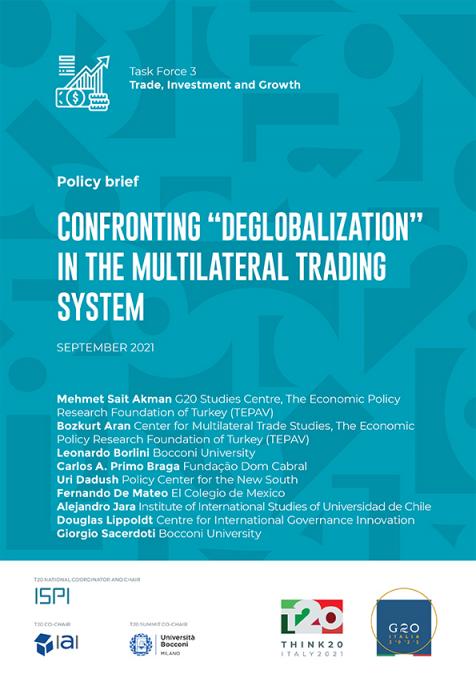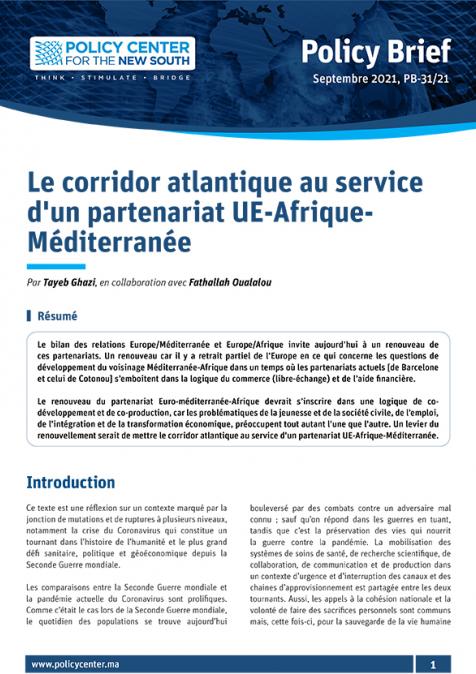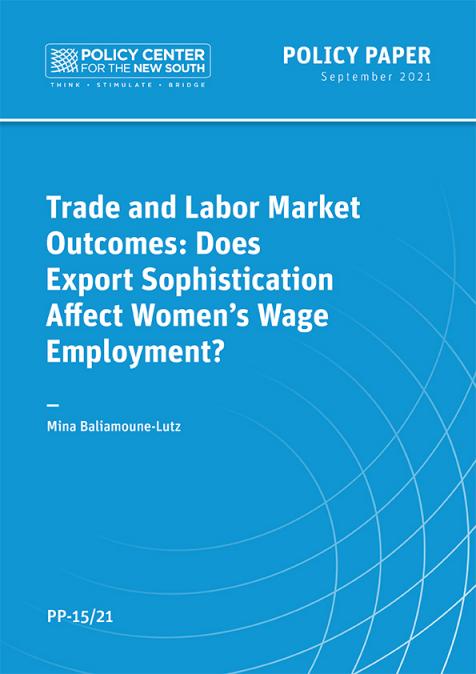Publications /
Opinion
The growth slowdown became evident in late 2017. World GDP at market exchange rates slowed from a seasonally adjusted annual rate of between 4 and 5% in the second half of 2017 to between 1.5% to 2% in the first half of 2019. The slowdown came as a big surprise and led to continuous revisions downwards of growth forecasts as shown yet again by the IMF’s World Economic Outlook issued last week.
Nearly all observers and experts had expected the expansion of 2016/2017 to continue. That expansion was broad based, occurred after many years of slow growth, against a background of loose monetary and fiscal policy, and was not accompanied by evident large imbalances, with inflation low.
Why, then, did the slowdown occur? The evidence points to trade tensions as a major contributor. Manufactures, which are subject to tariffs and are the most traded sector, slowed far more than services. Investment slowed even as consumption remained robust. World trade slowed from growth over 5% in 2017, to close to zero over the last year, which is over 2 standard deviations from its historical average.
The global slowdown occurred against a background of protectionist measures in the United States and retaliated upon by its partners: the first invocation of national security (section 232) to tax aluminum and steel and subsequently to threaten autos; section 301 was invoked to justify blanket across the board tariffs against China.
Business surveys have systematically pointed to trade tensions and the uncertainty they generate as the major concerns of respondents. Stock markets have become extraordinarily sensitive to trade news. The weakness in trade and broader economic activity persists despite the turn towards even looser monetary policy, negative real policy interest rates and a sharp decline in ten-year bond yields. Not only have trade disputes contributed in a major way to the global slowdown, they have also prevented the normalization of monetary policy.
Many economists were complacent about the effects of tariffs on economic activity at first. After all, models show that tariff changes have small aggregate effects, and only a small part of world trade was affected by them. This calculus was wrong. First, because while aggregate effects of tariffs are small the effects on specific sectors are large and cause major uncertainty affecting investment, hiring, etc. Second, because there is no symmetry – tariff increases of 10% don’t have the same effect as tariff cuts of 10% : trade skirmishes can turn into battles and battles turn into trade wars, and in the end, investors come to fear not just the specific effect of tariffs but they begin to fear regime change. In this instance, regime change means the faltering of the rules-based trading system and its replacement by power struggles.
With senior policy makers talk about decoupling from China, a trade war erupts between the two largest economies, threats to impose tariffs on imported automobiles in the United States are made repeatedly, and when the World Trade Organization’s Appellate Body is at risk of ceasing to operate because its judges are not being replaces – the possibility of regime change is clear and present.
Economists know quite a bit about the effects of regime change in international trade, and they are huge. Computable General Equilibrium Models, which measure change at the margin are not able to capture these effects because it is the model that changes. People often refer to the dire consequences of Smoot-Hawley and the Great Depression, but that is actually not the best example because it is difficult to disentangle the effect of tariffs from that of the deeper causes of the crisis. Recent examples of trade regime change are the globalized sanctions in Iran in 2014-2015 which threw the country into a tailspin, and the blockade of Gaza which is estimated to have reduced living standards by over 12%. The opening of Japan in the wake of the Meiji restoration is an example of positive trade regime change and is estimated to have added some 10% to Japan’s GDP. Telling as these examples are, they do not convey the potential effects of trade wars in the modern economy where production, not just consumptions, has become internationally reliant and integrated. Nor do these calculations account for the long-term effects of trade on competition, productivity and innovation. The example is far from perfect, but it is worth noting that in the early 1900’s, before the Russian revolution, the cities of Moscow and St Petersburg had a higher standard of living than Milan; today, 30 years after the end of the Soviet Union, the per capita income of Moscow and St Petersburg is less than half of that in Milan.
Are we, in fact, on the verge of regime change? To answer this question, you must answer three other questions: will the US abandon the rules-based system or is Trump an aberration? Can China adapt its state capitalist system to conform more closely to a model that fits better with those of its major trading partners? Can the WTO recover from the failure of the Doha process and be revitalized as a rule-setter and can its dispute settlement be reformed to address some of the US concerns, which are long-standing?
No one knows the answer to these questions for sure. My best guess is that we are in for a few more years of disruption, but ultimately the rules-based trading system will remain and be reshaped in various ways.
It is difficult to believe that the United States – by which I mean all its stakeholders, from businesses to its national security establishment – prefers a global economy without rules – they made many of those rules. However, it would be naïve to think that the many concerns the US has about the present system will disappear with a new administration. Much work needs to be done for Americans to return to being supporters of the system.
Equally, there is no doubt that China is willing to engage in reforms that ease its trading partners’ concerns, tightening intellectual property rules, lowering tariffs, opening sectors to foreign investment with less stringent conditions, and even reducing subsidies in sensitive sectors. After all, China has allowed its real exchange rate to appreciate by 40% since 2000 and has seen its large current account surplus disappear. It is not possible to brand China as a trade predator, as some did in past years. However, it would be naïve to think that China is willing to abandon its highly successful state-driven model, which the Communist Party sees as an essential mechanism for control.
As for the WTO, its members realize that its body of rules, laws and norms is necessary for trade to function and for the global value chains to operate. Most of the membership will go some way to ensure its survival. Means can be found to move forward with plurilateral agreements, agreements on specific sectors and which include only a subset of the membership. But for this route to work the biggest trading nations will have to find ways of “paying off” the nonparticipants in specific pluri-laterals. These payoffs can take the form of granting MFN treatment to them (they get the rights without the obligations) or flexibilities in implementation with assistance as happened in the trade facilitation agreement.
What happens if the multilateral rules-based system falters? The costs will be huge but will affect different countries differently. The trade of individual EU members will be less vulnerable than most. They are part of a big block which has economic power, able to deal with the US and China as equals. And trade relations within the EU and that with dozens of countries with which the EU has a trade agreement, which now include Japan and Canada, will likely remain well regulated.
If trade tensions can be contained, which does not mean necessarily reversing tariffs, but at least conveying a sense that the conflict will not escalate and spread, then there is a fair likelihood that a global recession will be avoided. The world economy could then return to close to its long-term growth path in relatively short order. Unfortunately, this is a bet that many investors don’t want to take.







